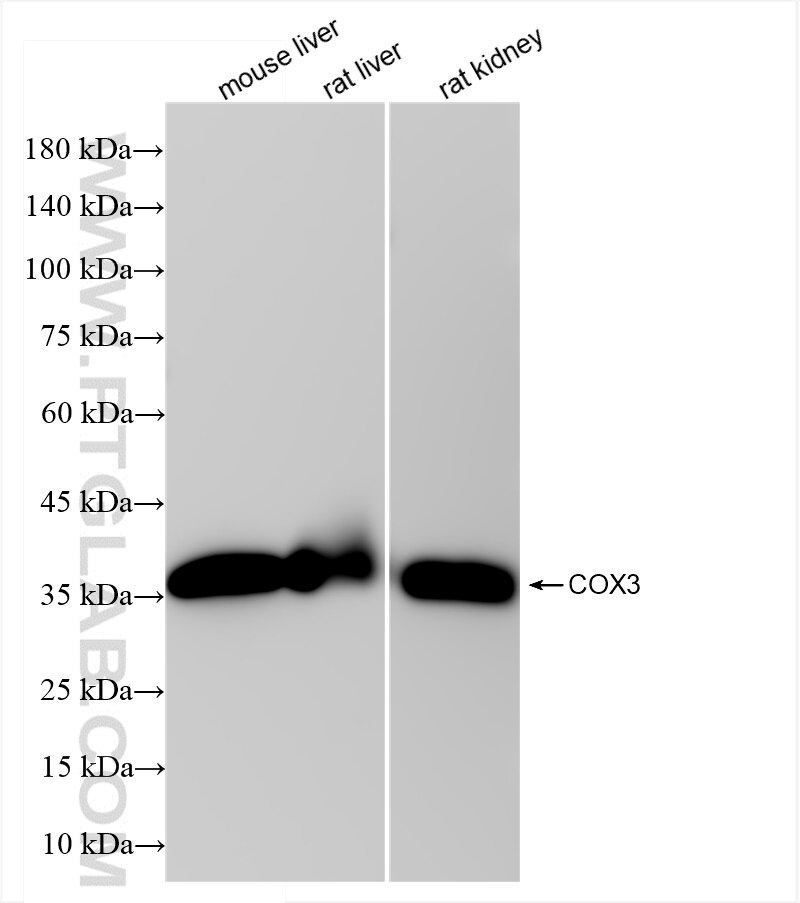Tested Applications
| Positive WB detected in | mouse liver tissue, rat liver tissue, rat kidney tissue |
Recommended dilution
| Application | Dilution |
|---|---|
| Western Blot (WB) | WB : 1:5000-1:50000 |
| It is recommended that this reagent should be titrated in each testing system to obtain optimal results. | |
| Sample-dependent, Check data in validation data gallery. | |
Product Information
84197-1-RR targets MTCO3 in WB, ELISA applications and shows reactivity with human, mouse, rat samples.
| Tested Reactivity | human, mouse, rat |
| Host / Isotype | Rabbit / IgG |
| Class | Recombinant |
| Type | Antibody |
| Immunogen |
Peptide Predict reactive species |
| Full Name | cytochrome c oxidase III |
| Calculated Molecular Weight | 30 kDa |
| Observed Molecular Weight | 35 kDa |
| GenBank Accession Number | YP_003024032 |
| Gene Symbol | MTCO3 |
| Gene ID (NCBI) | 4514 |
| RRID | AB_3671750 |
| Conjugate | Unconjugated |
| Form | Liquid |
| Purification Method | Protein A purfication |
| UNIPROT ID | P00414 |
| Storage Buffer | PBS with 0.02% sodium azide and 50% glycerol, pH 7.3. |
| Storage Conditions | Store at -20°C. Stable for one year after shipment. Aliquoting is unnecessary for -20oC storage. 20ul sizes contain 0.1% BSA. |
Background Information
MTCO3 (cytochrome c oxidase subunit III) is a mitochondrial DNA encoded subunit of respiratory Complex IV which is located within the mitochondrial inner membrane and is the final enzyme of the electron transport chain of mitochondrial oxidative phosphorylation. The predicted MW of MTCO3 is 30 kDa, while it had been observed as 23 kDa in some papers (PMID: 17557076).
Protocols
| Product Specific Protocols | |
|---|---|
| WB protocol for MTCO3 antibody 84197-1-RR | Download protocol |
| Standard Protocols | |
|---|---|
| Click here to view our Standard Protocols |




